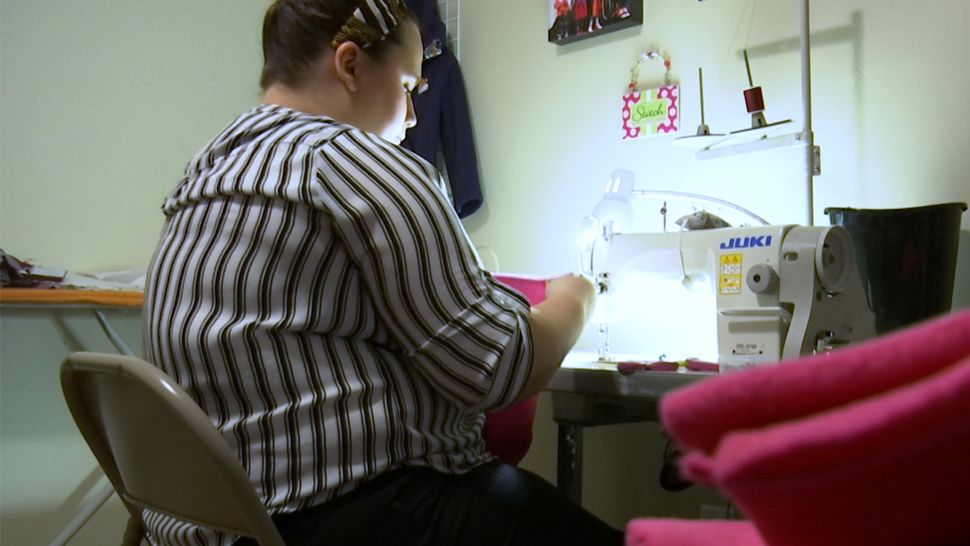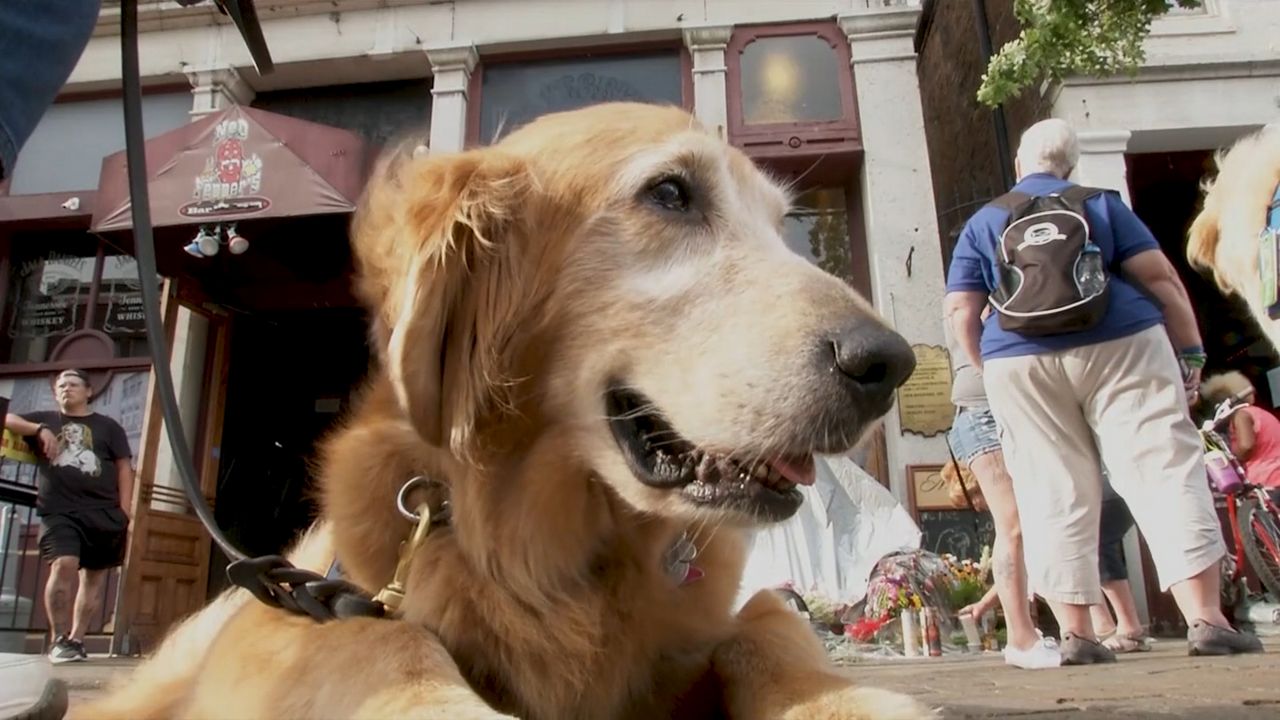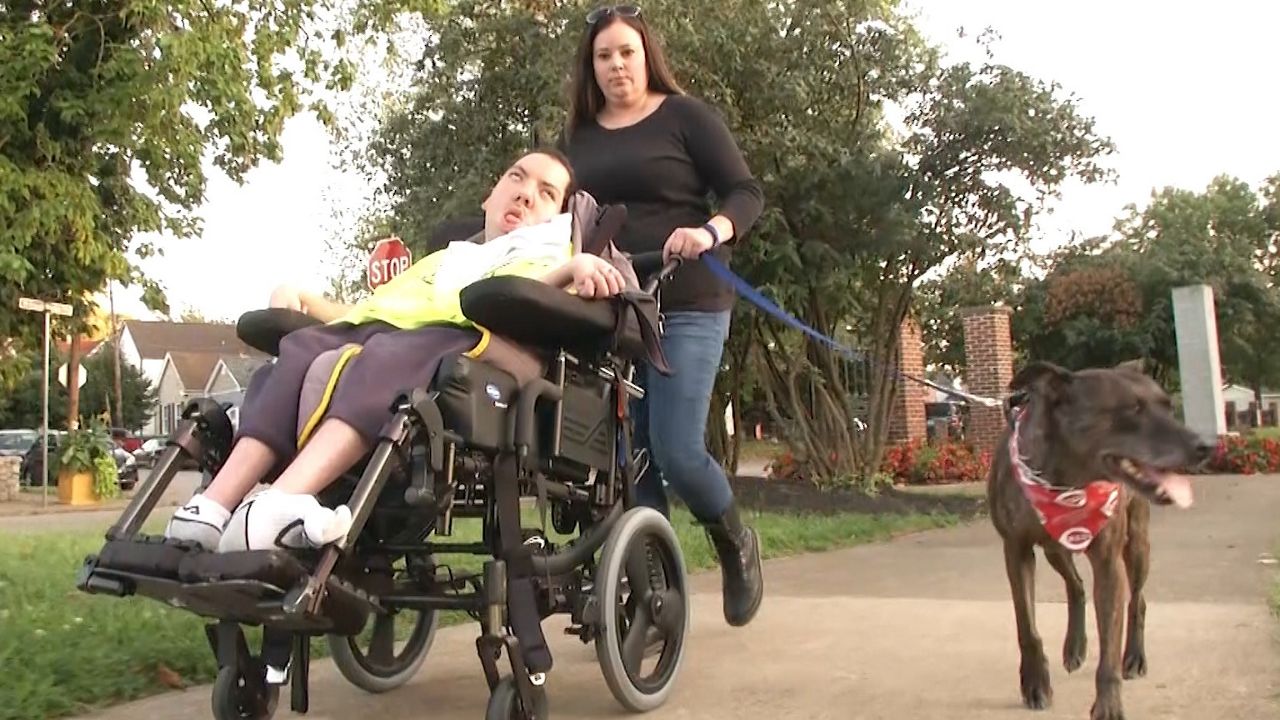BEREA, Ohio — Tuyen Reed and her poodle, Noah go just about everywhere together.
- An Ohio organization is working to get service dogs to kids with disabilities
- The dogs are mostly trained through partnerships with prisons
- Inmates train the dogs to help with specific needs of different kids
“Noah is able to help me with my walking, I tend to walk with a more side-to0side gait, instead of like straightforward. So, he definitely helps me with a more straighter path of walking, and also he's really there also for my emotional support,” said Tuyen Reed, Chagrin Falls.
Reed has cerebral palsy and Noah is specially trained to help her.
“He's always there for support in case I get tired or in case I need just like someone or something to lean on. So, he's always there and if I need like someone to talk to. He's my go-to person, or dog, I guess,” said Reed.
Noah also gives Reed independence as she gets older.
“It's really nice to be able to go out with my friends and not have my parents worry, like, what if you get tired, what if you can't keep up with your friends,” said Reed “My response is always, I just have Noah, so it's always great to have that sort of burden and weight lifted off my shoulder.”
Tuyen got Noah from the organization “Working Animals Giving Service,” or W.A.G.S. 4 Kids.
Executive director Sera Nelson’s parents started W.A.G.S. back in 2004.
“It was my mom, who has been a dog trainer all of her life and my dad who's a former special education teacher, who found this hole in services provided to children with special needs,” said Nelson.
At the time, Nelson says, you could only apply for a service dog at 15 years old.
“The early intervention is so important when you're talking about special needs children, especially when you're talking about developmental disabilities,” said Nelson. “Think of all of the attributes that we acquire as human beings, from our personalities to just what we learn as young children, that wind up reflecting in our lives later as adults.”
The dogs are mostly trained through partnerships with prisons.
Inmates train the dogs to help with specific needs of different kids.
“We now train and place service dogs for families with both mobility disabilities, as well as children that are on the spectrum, children that struggle with PTSD, with anxiety disorders, truly whoever needs us as early in a child's life as they need us,” said Nelson.
Reed got Noah at 14 years old. She says she can’t imagine life without him.
He will allow her to go to a college out of state, where she hopes to major in neuroscience and psychology.
“It's amazing because I feel like sometimes I know I'm not the only person with my condition, but around me and in this area, and especially my friends, I feel like they try to relate to what I'm going through, but they can't,” said Reed. “So, I'm really just, it's me and my, my dog. And he's basically there for me like no other person can, because I can't really relate full-on to my firsthand experiences of what life is like.”
“It’s that they are able to grow and reap the benefits from out of this partnership, is, well... magic is the only word that we have for it,” said Nelson.









